Despite SCOTUS ruling, some Alabama counties give gay marriage licenses, others refuse
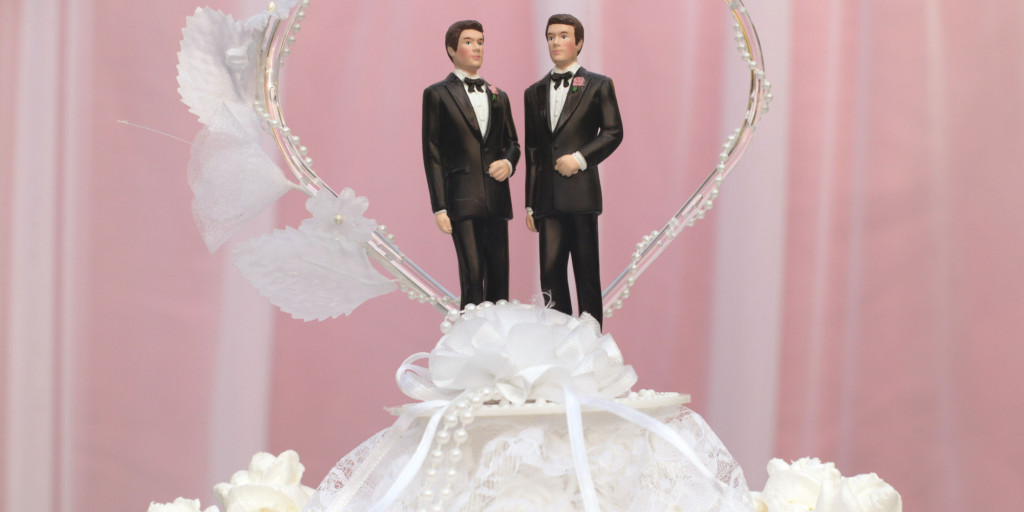
Nearly one-third of Alabama counties on Monday were not issuing marriage licenses to gay couples, or had shut down marriage license operations altogether, despite Friday’s landmark U.S Supreme Court ruling that same-sex couples have a fundamental right to marry. An Associated Press telephone survey of counties on Monday found that at least 32 of the state’s 67 counties were issuing the licenses to gay couples. However, at least 22 counties were not issuing the licenses, with many of those shutting down marriage license operations altogether as probate judges said they needed time to sort out the ruling. Rep. Patricia Todd, the state’s only openly gay lawmaker and the head of the Human Rights Campaign-Alabama, said the probate judges need to accept that the issue was settled with the U.S Supreme Court ruling that made gay marriage the law of the land. “It’s perplexing to me that they are not able to do their job,” Todd said. “Unfortunately, I think it’s probably going to continue until one gets sued and thousands of taxpayer dollars are spent on a lawsuit they are going to lose.” In March, in response to a request from two conservative groups, the Alabama Supreme Court ordered probate judges not to issue licenses to gay couples. On Monday, the court issued an order that noted a 25-day rehearing period for the landmark marriage ruling and asked the judges and the conservative groups to file motions “addressing the effect of the Supreme Court’s decision” on the March injunction by July 6. At least two probate judges pointed to the order from the state’s highest court to explain why they were not issuing same-sex marriage licenses. Randolph County Probate Judge George Diamond said he is waiting for the end of a 25-day appeal period before he begins issuing same-sex marriage licenses. Diamond said the county could begin sooner if it receives a directive from the state’s high court. “Right now my attorneys are telling us to hold off and see what this appeal is,” he said. Marion County Probate Judge Rocky Ridings said the county is not issuing same-sex marriage licenses after receiving the Alabama Supreme Court’s order. Alabama Supreme Court Chief Justice Roy Moore, who recused himself from the Alabama marriage case because of his past statements, did not participate in Monday’s order. He did issue a separate statement, however, saying that “in no way does the order instruct probate judges of this State as to whether or not they should comply with the U.S. Supreme Court’s ruling.” Susan Watson, executive director of the American Civil Liberties Union of Alabama, said probate judges could face court sanctions if they issue marriage licenses to heterosexual couples but refuse to give them to gay couples. “There is no justification for delaying or obstructing the clear message of the Supreme Court of the United States — marriage equality must begin in Alabama, and probate judges who stand in the way of that legal imperative risk exposing themselves to legal consequences,” Human Rights Campaign Legal Director Sarah Warbelow said in a prepared statement. Some counties began granting the licenses to gay couples on Friday. More counties followed suit Monday after the Association of County Commissions of Alabama sent a memo advising probate judges to follow the U.S. Supreme Court ruling. “We are going to issue a license to every couple that qualifies under the law,” Monroe County Probate Judge Greg Norris said. “We’re going to follow the law.” Shelby County began issuing same-sex marriage licenses on Monday, after delaying on Friday so that Probate Judge James Fuhrmeister could review the U.S. Supreme Court’s decision. The delays won praise from some same-sex-marriage opponents. “Thank God that we have probate judges who stand for that which is right to keep their counties out of the principle of marrying that which God says cannot be married,” John Killian, pastor at Maytown Baptist Church, told a news conference in front of the Alabama Supreme Court building. State law says that probate judges “may” issue marriage licenses, meaning they aren’t required to issue them. Several judges have cited that provision as they ponder what to do. “I expect, in those counties, voters will get tired of having to drive to other counties to get marriage licenses,” Watson said. “That’s just ridiculous. It’s a hassle for everyone.” Republished with permission of The Associated Press.
Alabama Chief Justice Roy Moore says Christians will be ‘persecuted’ after same-sex marriage ruling
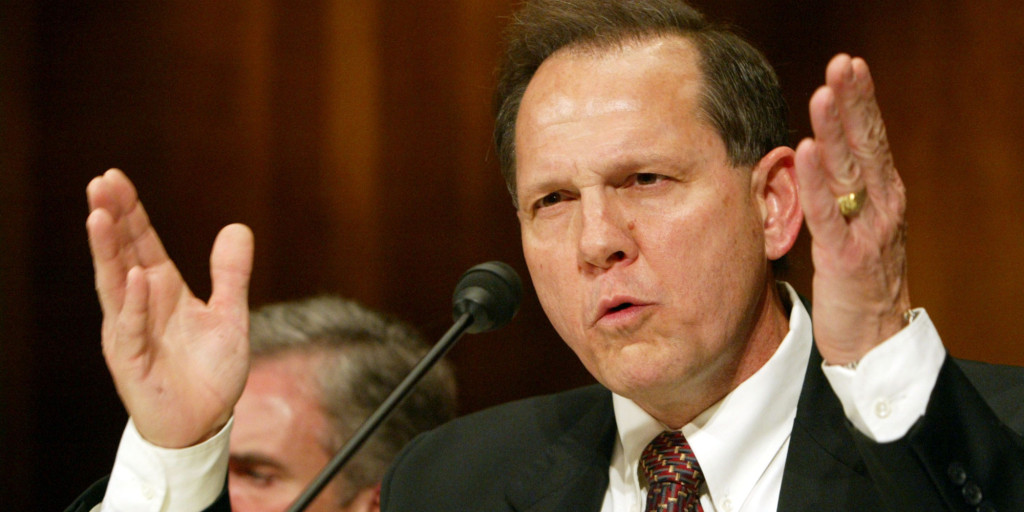
The U.S Supreme Court, in ruling that gays and lesbians have a right to marry nationwide, handed a decisive loss to Alabama Chief Justice Roy Moore who earlier this year fought to keep same-sex marriage from coming to Alabama. The chief justice, speaking Sunday at Kimberly Church of God, lashed out at the decision, saying he could not accept the ruling as correct. He said it made sin a national right and it was as wrong as the court decisions that allowed slavery. “Just who do they think they are when one person can reverse 200-and-something years of precedent in our country and thousands of years of precedent in western civilization,” Moore said during remarks Sunday at Kimberly Church of God. The Republican chief justice, often a lightning rod for controversy, was careful at times to quote or paraphrase the words of dissenting justices in describing his opposition including Justice Samuel Alito‘s prediction that opponents of gay marriage would be vilified and Chief Justice John Robert‘s phrase of, “Just who do we think we are?” “Welcome to the new world. It’s just changed for you Christians. You are going to be persecuted according to the U.S Supreme Court dissents,” Moore said. Moore in February directed probate judges to not give marriage licenses to same-sex couples, saying they were part of an independent judicial branch and not bound by a federal judge’s order overturning Alabama’s ban on gay marriage. “Is there such a thing as morality anymore? Sodomy for centuries was declared to be against the laws of nature and nature’s God. And now if you say that in public, and I guess I am, am I violating somebody’s civil rights? Have we elevated morality to immorality? Do we call good, bad? What are we Christians to do?” Moore spoke at the church’s “God and Country Day” on an altar decorated with American flags and beneath a projected image of Jesus on a cross. “Christians are commanded not to hate their fellow man. They are commanded to love their fellow man … We are to love our fellow man and if we love our fellow man what are we do but tell them when there is sin, because sin is something you are supposed to hate. When they create it as a national right, a fundamental right, what are we do?” Richard Cohen, president of the Southern Poverty Law Center, said it was a farcical to suggest that that opponents of same-sex marriage would be persecuted, saying the court majority made it clear that the First Amendment rights of opponents would be protected. “It’s a myth and a scare tactic,” Cohen said. Cohen said he hoped that Moore would follow the lead of other Alabama politicians who while vehemently disagreeing with the decision, said it must be respected as the law of the land. “We’ve yet to hear that from Judge Moore,” Cohen said. “Judge Moore would be so much better suited for the pulpit than the bench,” Cohen said. Republished with permission of the Associated Press.
Alabama resumes gay marriage licenses, but not everywhere

Jessica Dent and Carolee Taylor exchanged vows in front of a flowing fountain in downtown Montgomery within hours of a U.S. Supreme Court decision that legalized gay marriage nationwide. “Never thought it would happen in our lifetime,” Taylor, 39, said, admitting she was so nervous and excited this morning that she repeatedly smudged her toenail polish. A couple for more than 13 years, they said they didn’t want to wait a day longer to be married. “We waited so long. When it came through, I can’t think of a better way to celebrate, the decision and our love,” Dent, 40, said. The ruling allowed same-sex weddings to resume in the conservative Deep South state, one of 14 states where gay couples could not marry, and one that had fought against legalized same-sex marriage until the last moment. Couples began marrying in some Alabama counties Friday, but in other counties they had to wait as officials resisted, or tried to figure out what to do next. A few blocks away from Dent and Taylor’s wedding, Alabama Chief Justice Roy Moore said he was “saddened for the future of our country.” “They’ve just disregarded everything that precedent holds, and they’ve destroyed the foundation of our country, which is family,” Moore said of the ruling. Earlier this year, Moore told probate judges they were not bound by a federal judge’s ruling overturning Alabama’s ban on gay marriage. And he noted Friday that an Alabama Supreme Court order from March directing judges to refuse to issue gay-marriage licenses has not been lifted. He stopped short of calling for direct resistance, but said states can fight the ruling, as they have decisions allowing slavery or abortion. “The states can do something about this. They’ve done something about things like Dred Scott and Plessy versus Ferguson. There’s been an uproar continually about Roe versus Wade in 1973. This is a religious battle that is just beginning,” Moore said. In Birmingham, Jefferson County Probate Judge Sherri Friday said issuing same-sex marriage licenses was just “business as usual.” “It seems like such a big story, but when you get to the mechanics of it, it’s just that now same-sex couples can marry just like everybody else,” Friday said. Joseph Baker and Joshua Garrard got a marriage license in Jefferson County while still trying to decide if their last name would be Baker-Garrard or Garrard-Baker. “It’s very refreshing to know that now the government sees us as equals,” Baker said. The couple came to Jefferson County after getting turned away in Shelby. Shelby County Probate Judge Jim Fuhrmeister was unavailable for comment Friday afternoon. A clerk said he would not begin issuing same-sex marriage licenses until he has had time to review the Supreme Court’s decision. But Pike County Probate County Judge Wes Allen said he was “saddened” by the Supreme Court’s decision and said he wouldn’t issue marriage licenses to anyone, gay or straight. Allen cited a section of Alabama law that says counties “may” issue marriage licenses rather than requiring them to do so outright. Alabama spent much the first half of 2015 in a fight over gay marriage. A judge ruled the state’s ban on same-sex marriage unconstitutional. About 500 same-sex couples were married until the Alabama Supreme Court stepped in and directly ordered probate judges to stop issuing the licenses. The Association of County Commissions of Alabama, which has provided legal guidance and liability coverage to judges during a twisting legal fight over gay marriage, sent probate judges a memo suggesting that judges take applications but not issue the licenses on Friday as lawyers review the ruling. “We’ve just suggested for this one afternoon, as remarkable as this one afternoon is, we don’t see any harm in doing all due diligence before moving forward,” said Sonny Brasfield, executive director of the group. Brasfield said he presumes that their advice on Monday will be to issue licenses. Top elected officials in Alabama criticized the high court’s decision, but acknowledged it was law. “I have always believed in the Biblical definition of marriage as being between one man and one woman,” Alabama Gov. Robert Bentley said in a written statement. Alabama Attorney General Luther Strange said the court “overturned centuries of tradition and the will of the citizens of a majority of the states.” However, Strange said the court had the final say absent a change to the U.S. Constitution. State Rep. Patricia Todd, the state’s only openly gay lawmaker, cheered the ruling and said she hoped state probate judges would immediately begin granting marriage licenses to gay couples. “I’m ecstatic. I’m not shocked, I felt they would give a very strong clear opinion which leaves nothing to chance, which they did. I’m just tickled to death. It validates all of these marriages. Now we’ve got to figure out if probate judges in Alabama will cause any stink, which is a possibility, of course,” Todd said. Republished with permission of The Associated Press.
First gay marriage licenses issued in Alabama

Some Alabama counties have started issuing marriage licenses to gay couples after the U.S. Supreme Court struck down the state’s ban on same-sex marriage. A supervisor in Mobile County‘s probate court, Russ Davidson, said the court issued its first same-sex marriage license to two women Friday after months of refusing to sell marriage licenses to anyone. The issuance came within hours of the U.S. Supreme Court ruling making gay marriage legal across the United States. Jefferson County was also ready to issue licenses to gay couples. Other counties said they were studying the ruling. Pike County Probate County Judge Wes Allen said he was saddened by the ruling and would not issue licenses to anyone, gay or straight. Republished with permission of The Associated Press.
Alabama reactions to Supreme Court declaring same-sex marriage a right
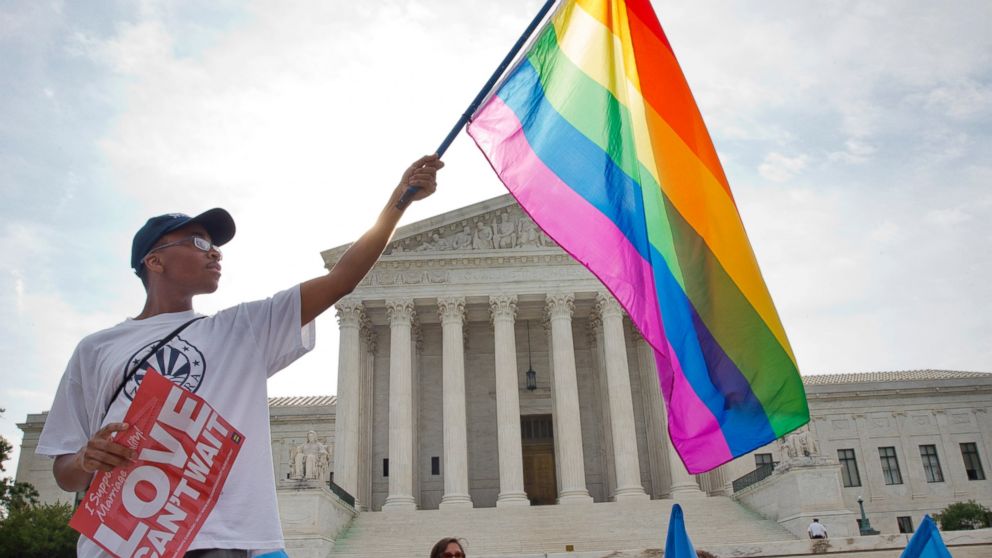
Friday, the U.S. Supreme Court declared in a 5-4 ruling that same-sex couples have a right to marry in the United States. The AP reports, “Gay and lesbian couples already can marry in 36 states and the District of Columbia. The court’s 5-4 ruling means the remaining 14 states, in the South and Midwest, will have to stop enforcing their bans on same-sex marriage.” Read more here. Here are reactions from elected officials and political groups in Alabama. We will be updating this post as they come in: U.S. Rep. Bradley Byrne AL-01: I have always believed that marriage should be defined as the union between one man and one woman. I believe today’s decision threatens what should be exclusive state jurisdiction over matters pertaining to marriage. U.S. Rep. Gary Palmer AL-06: I strongly disagree with the Supreme Court’s decision in this case and believe it represents the height of Judicial activism. Two years ago, in U.S. v Windsor, the Supreme Court struck down the Defense of Marriage Act as unconstitutional because they claimed that it interfered with the right of states to define marriage as each state saw fit. Now that same Court has summarily invalidated the right of every state, such as Alabama, that defines marriage as between one man and one woman. Nonetheless, it is important to remember that in a larger sense, neither the Supreme Court nor any government entity can redefine marriage, because the definition of marriage pre-exists government. No one can change the fundamental nature of what marriage is: the union of a man and woman and the formation of family which is the foundation of every civilization. The Court’s ruling cannot change that. Because of this ruling I have grave concerns about the assault against the religious liberties of the millions of Americans for whom marriage is a religious institution and will always remain one. Congress should act to ensure that the religious liberties of all Americans are protected so that no one is ever be forced or coerced into violating their conscience. U.S. Rep. Terri Sewell AL-07: There are moments in American history when the trajectory of our nation shifts. Today, the Supreme Court’s ruling affirmed the basic principle that our Constitution affords all Americans the same equal protections under the law, while also acknowledging our First Amendment right to maintain our own religious beliefs. Marriage licenses are an instrument of the state, and every person should have the rights afforded to all unions sanctioned by the state. This decision positively upholds the equal dignity of all Americans to enter and have the same rights afforded to every union of marriage. Gov. Robert Bentley (via a statement): I have always believed in the Biblical definition of marriage as being between one man and one woman. That definition has been deeply rooted in our society for thousands of years. Regardless of today’s ruling by the Supreme Court, I still believe in a one man and one woman definition of marriage. The people of Alabama also voted to define marriage as between a man and woman. I always respect the people’s vote, and I am disappointed that the Supreme Court has disregarded the choice made by the people of Alabama in its decision today. AL Attorney General Luther Strange (via @lyman_brian on Twitter): Disappointed in same-sex marriage ruling, but “I acknowledge that the U.S. Supreme Court’s ruling is now the law of the land.” State Rep. Patricia Todd (Via a tweet shortly after decision announced): Court rules love wins Alabama Chief Justice Roy Moore: I think it is just the beginning. I think it’s the beginning just like when the court in 1857 declared that black people were property. It had no right to do that and there was a long turmoil there after. There was actually the civil war and there was a constitutional amendment. Alabama Policy Institute (Via its Facebook page): Foundational to the Alabama Policy Institute’s mission is the adherence to an originalist understanding of the Constitution, zeal for the “numerous and indefinite” powers reserved to the states, and lastly, a biblical view of matters affecting the family. Today’s ruling trounces on a strict interpretation of the Constitution by creating an entirely new right and by inexplicably taking the matter out of the hands of the people of each state. This ruling will have far-reaching consequences, particularly for those who maintain sincere religious beliefs on marriage. We call on our state’s delegation in Congress, the Governor of Alabama, and the Alabama Legislature to take proactive steps to ensure that no Alabamian will be forced to relinquish the freedom to live in accordance with their religious convictions on this matter.
Legislative session enters home stretch with no budget fix
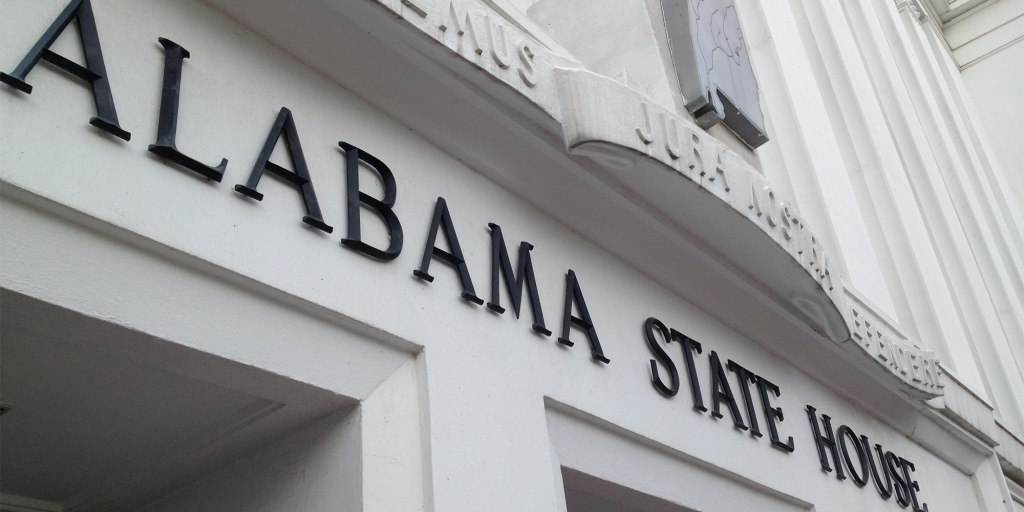
Alabama lawmakers on Tuesday begin the home stretch of the legislative session with their biggest challenge still unsolved: a shortfall in the general fund budget. There are four legislative meeting days remaining and so far no consensus on how to handle a projected $200 million shortfall in next year’s general fund budget. Legislators have been unable to agree on tax increases or on a proposal to shift some money from the education budget to avoid cuts to key state agencies. “I think most are resigned to a special session,” Senate Finance and Taxation General Fund Chairman Arthur Orr, a Republican of Decatur, said. The stalemate comes after months of negotiations by legislators on ways to fill the budget hole and warnings by Gov. Robert Bentley about the severe cuts to state services that will occur if they don’t. Lawmakers have rejected Bentley’s call for $541 million in new taxes. House GOP members temporarily backed a smaller $151 million tax increase but withdrew it after Senate leaders said GOP senators would oppose it. The session is expected to conclude next week, but by law must end by June 15. Here is a look at the status of other issues before lawmakers this session: Payday loans An effort to limit what payday lenders can charge on the short-term loans appears to be stalling again this legislative session. A House committee approved a bill that would give borrowers more time to repay a loan, taking the window from 14 days to six months. However, the bill has not gotten a vote on the House floor. Alabama Accountability Act Alabama lawmakers are close to making changes to a controversial school choice program that helps families pay for private school. A conference committee is considering the bill to expand the yearly cap on the tax credits that fuel the scholarships from $25 million to $30 million. It would also tighten income requirements on the scholarships and increase reporting requirements on the organizations that grant the scholarships. Abortion The bill that would ban abortion clinics within 2,000 feet of public K-12 schools has been approved by the House of Representatives but has not gotten a Senate vote. The bill would force a Huntsville abortion clinic, one of the state’s five abortion clinics, to move or close. Another House bill would ban abortions once a fetal heartbeat can be detected, which can happen as early as six weeks into a pregnancy, but has not gotten a floor vote. Marriage licenses/Gay marriage A bill, brought in response to the possibility of the U.S Supreme Court legalizing same-sex marriage, would get Alabama out of the marriage license business altogether. The bill would do away with current state marriage licenses issued by probate judges. Instead, couples would take a contract witnessed by a couple’s minister or attorney. The state Senate approved the bill but it has not gotten a House vote. Gambling A bill aimed at allowing a lottery and casinos in the state is dead for the session. The proposal did not get a floor vote in the Alabama Senate. In the final four days of the session, senators, under legislative rules, must unanimously agree to send approved Senate bills down to the House for consideration. The procedural hurdle dooms senators’ controversial bills in the final days of the session. Medical marijuana Like the gambling legislation, a Senate bill to allow the use of medicinal marijuana for certain illnesses and conditions, is also dead for the session because it did not get a Senate floor vote. The bill did get out of the Senate Judiciary Committee this year. Republished with permission of The Associated Press.
Gov. Mike Pence passes up presidential bid, but future still cloudy
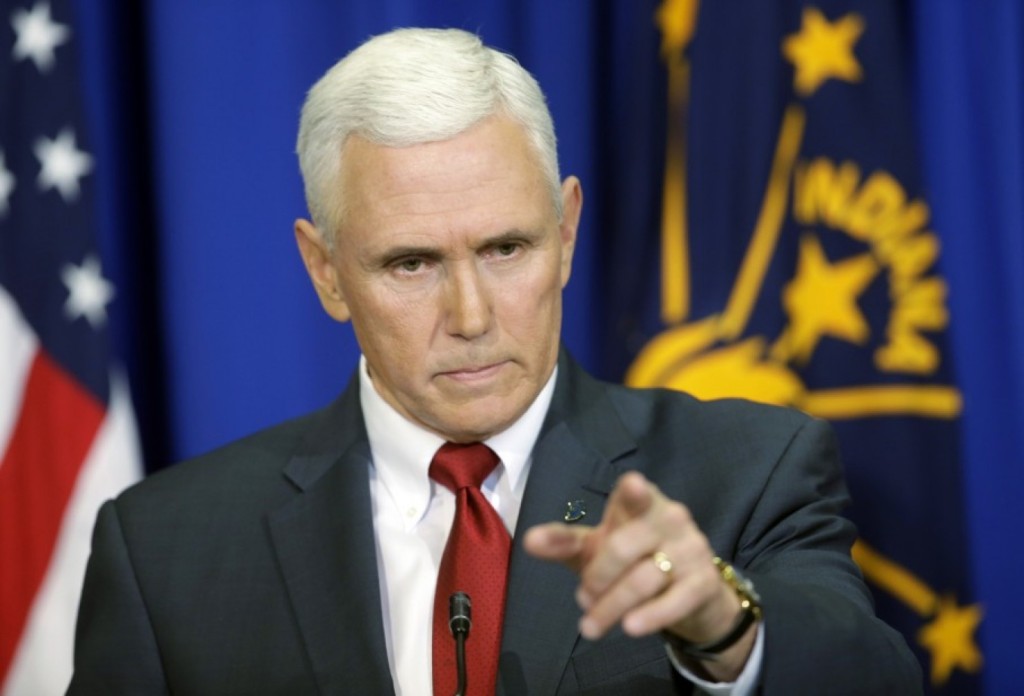
Indiana Gov. Mike Pence‘s decision not to fulfill the political buzz and chase White House dreams in 2016 doesn’t necessarily clear up questions about his future. Pence plans to formally announce his bid for a second gubernatorial term next month. But lingering unhappiness over the handling of a religious objections law this spring that critics viewed as anti-gay and businesses spoke out against in force could make him the first sitting governor to face a serious primary challenge since the state adopted the system in the 1970s. Two wealthy Republican businessmen are already talking about launching or supporting challenges to Pence. If they follow through, the race could expose the depth of GOP turmoil caused by this year’s debates over similar religious initiatives in states such as Indiana, Arkansas and Louisiana. Republican pollster Christine Matthews said the tumult left many people questioning Pence’s motivations. “I think he still has some work to do to mend things with the business community — not just the business community but a fair chunk of the Republican Party,” she said. Pence championed social issues during 12 years in Congress but largely sidestepped them early in his governorship. He had been seen by some in GOP circles as someone who could unite the party’s religious and business wings, and stoked talk of a national run with speeches to prominent party and conservative groups and trips overseas. Those prospects faded quickly when he signed the state’s Religious Freedom Restoration Act in late March, touching off national criticism and following on the heels of last year’s battle over a proposed state constitutional ban on gay marriage. Fears that the law would give business owners legal license to discriminate against gays based on religious beliefs prompted companies to ban travel to the state and some conventions to threaten cancellations — a politically dangerous fallout as Indianapolis has thousands of jobs tied to major sporting and business events. Already, Indiana has made the first $750,000 payment of what’s expected to be a $2 million image-rebuilding contract with a New York public relations firm. Business leaders torched Pence, saying the measure painted Indiana as an intolerant place. And after the law was revised, some in his conservative base accused him of caving in to pressure. By April, Pence’s approval ratings had steeply dropped. Pence enters the campaign with huge advantages in fundraising and name recognition over possible opponents — although Democrats and gay rights supporters are likely to push for adding sexual orientation to civil rights protections, adding to the political thorn in his side. “Pence won’t really be able to control that,” said Matthews, who did polling work for former Gov. Mitch Daniels’ campaigns and noted that Pence will have to rebuild his reputation among voters. “It’s going to become like the scab that doesn’t heal over.” Pence campaign spokesman Robert Vane said the governor is confident of his support among Republicans and pointed to his work with the GOP-dominated Legislature to advance many initiatives. “The governor was very clear that he regretted what happened and he regretted some of the noise around it,” Vane said of the religious objections law. “But they worked together, not only to craft a fix, but also to do dozens and dozens of other good things for Hoosiers on things like education, a balanced budget amendment, infrastructure.” Bob Thomas, who owns auto dealerships in Indianapolis and Fort Wayne, said he was weighing a challenge to Pence in the GOP primary because the governor has ignored important issues, such as methamphetamine abuse and an overhaul of the troubled state Bureau of Motor Vehicles. Many business leaders lost confidence in Pence over the religious objection law, he said. “That was because of Mike Pence,” Thomas said. “He talks about all this stuff. He energized the religious right to bring these issues to the Legislature. He told them he would sign it.” Thomas spent nearly $600,000 of his own money for an unsuccessful 2010 Republican primary challenge to then-U.S. Rep. Mark Souder in northeastern Indiana. A major player in business and political circles, Angie’s List CEO Bill Oesterle, announced last month he was stepping down as leader of the Indianapolis-based consumer review company to become more involved in state politics and help repair the damage from the religious objections law. Oesterle hasn’t said whether he’ll seek office himself or support other candidates, although he did run Daniels’ 2004 gubernatorial campaign and gave at least $150,000 to Pence’s 2012 campaign. Vane said it was still speculation whether any Republicans will actually challenge Pence. Two Democrats have already announced candidacies for their party’s 2016 nomination, including former Indiana House Speaker John Gregg, who narrowly lost to Pence in the 2012 gubernatorial election. Democratic state schools Superintendent Glenda Ritz, who has clashed repeatedly with Pence on education policy, could also enter the mix. Republished with permission of The Associated Press.
Federal Judge: Gay couples across Alabama have right to marry

A federal judge on Thursday ruled that gays and lesbians have the right to marry in all Alabama counties, but placed her decision on hold until the U.S Supreme Court weighs in on same-sex marriage this summer. U.S District Judge Callie Granade, as she has before, ruled that Alabama’s ban on same-sex marriage is unconstitutional. This time, though, she forbade all probate judges from enforcing it. Her decision to stay the order until the high court rules means that, at least for now, same-sex couples still cannot marry in Alabama. That didn’t stop groups from cheering the ruling as a victory, however, in a state that spent much of the early part of this year at legal war over the issue. “Judge Granade’s new order means that very soon, no probate judge in the state will be able to deny a marriage license to any qualified same-sex couple,” said Southern Poverty Law Center deputy legal director David Dinielli. “This is the right result for Alabama families and it is the one the United States Constitution commands.” The ruling is the latest from the federal judge who has been at the center of gay marriage cases in the conservative Southern state. The order could be her final salvo at the state level before the Supreme Court decision. Granade first ruled that Alabama’s gay marriage ban was illegal in January. As a result, gay couples were able to get married for three weeks until the Alabama Supreme Court in March ordered probate judges to stop issuing marriage licenses. More than 500 same-sex couples married in Alabama during that time, according to the Alabama Department of Public Health. Groups fighting for marriage rights fired back at the Alabama Supreme Court’s decision with a class-action lawsuit brought by gay couples across the state. Granade’s decision Thursday was in response to that lawsuit. Alabama Chief Justice Roy Moore, although he did not participate in the state Supreme Court order, has been a vocal opponent of Granade’s decisions, arguing that she did not have a right to dictate to the state probate judges. The probate judges are part of a parallel state court system, Moore argued. Granade made no secret of which Alabama courtroom she believes has the final say. “It is true that if this Court grants the preliminary injunction, the probate judges will be faced with complying with either Alabama’s marriage laws that prohibit same-sex marriage as they have been directed by the Alabama Supreme Court, or with complying with the United States Constitution as directed by this Court. However, the choice should be simple. Under the Supremacy Clause, the laws of the United States are the ‘supreme Law of the Land,’” she wrote. Alabama Attorney General Luther Strange said he was glad Granade “finally accepted our advice and issued a stay.” However, he said the state would have avoided months of “chaos and confusion” if she had done so when she first ruled in January. “We’ve said from the beginning that the U.S. Supreme Court would have the final say in this matter,” Strange said. Republished with permission of The Associated Press.
The headline the AP and others got wrong: the Anne Susan DiPrizio disorderly conduct case
If you had just skimmed the news Monday afternoon you’d think Anne Susan DiPrizio was arrested for, and pleaded guilty to, attempting to perform a same-sex marriage. Here’s a roundup of headlines: The Associated Press: Alabama minister arrested over gay wedding pleads guilty Montgomery Advertiser: Prattville minister pleads guilty in same sex marriage case GulfLive.Com: Anne Susan DiPrizio, Alabama minister, arrested over gay wedding pleads guilty I’m not sure how it would be a crime to perform same-sex weddings but the headlines make for compelling click-bait. The fact is that DiPrizio didn’t get arrested for attempting to marry a same-sex couple couple. She was arrested on a disorderly conduct charge after refusing repeated requests to leave the Autauga County Probate Office by its staff and later by law enforcement. MSNBC reported that following a confrontation in the office after being told that marriages were not permitted there, six deputies arrived at the office and the couple, who DiPrizio had met that day, promptly left, leaving her there. The Montgomery Advertiser reported Capt. Tom Allen with the Autauga County Sheriff’s office “told her she was either going to leave the office or be arrested, she got up from the chair she was sitting in and kneeled in the floor.” Her intent was clear. Had she truly been interested in performing a same-sex marriage she could have just left with the couple she met there that day and gone to a different location to marry them. I can see how that doesn’t make as compelling a story, so the same-sex marriage headline was conceived. According to Monday’s Montgomery Advertiser report (yes, one of the ones with a misleading headline), after pleading guilty to disorderly conduct for not leaving the scene, DiPrizio was sentenced to 30 days in the Autauga Metro Jail, suspended in place of six months unsupervised probation. She was also ordered to pay a $250 fine and other associated court costs. This story is simply about a misdemeanor disorderly conduct case, a woman who didn’t listen to law enforcement. It’s that simple: Exaggerated headlines change the facts. As for the couple she met and wanted to marry on the day of her arrest, Courtney Cannon and Morgan Plunkett, according to a profile by Fusion.net, they were married the next day in Montgomery.
Time runs short as lawmakers look for budget solution
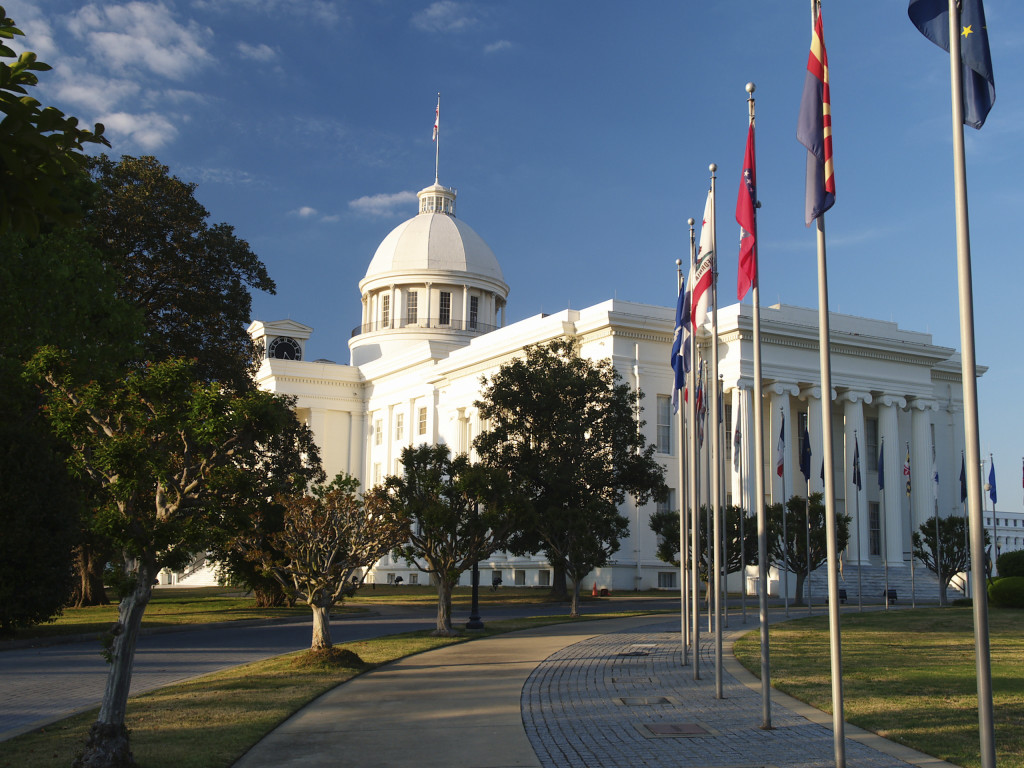
Lawmakers are running short on time and options as they seek a solution to the projected General Fund shortfall for next year. There are eight meeting days left in the 2015 legislative session. Lawmakers agree they need to work together. They haven’t agreed on a solution. “We really just need to sit down and come up with ideas. Right now, it’s kind of been everybody coming up with their own ideas,” House Speaker Mike Hubbard said. “We’ve got to work together over the next few days.” The Alabama House of Representatives will vote Tuesday on a stripped down $1.6 billion budget that cuts about $200 million from state agencies. Gov. Robert Bentley has called the spending plan “irresponsible” and one that would “hurt people.” Legislators have so far rejected Bentley’s call for $541 million in taxes. House Republicans at one point threw their support to a much smaller $150 million revenue plan that was anchored by a 25-cent per-pack tax increase on cigarettes. House support crumbled after Senate President Pro Tem Del Marsh predicted senators would not go along with the plan, Republicans said. “We’ll see what the body thinks when they actually see the budget. We’ll have to make some decisions,” Marsh said. Marsh said so far lawmakers aren’t hearing calls from people urging revenue over cuts. That could change as the budget gets closer to being finalized, he said. “But then again we might not hear anything,” Marsh said. Behind-the-scenes talks are continuing on the budget. Marsh and Hubbard have scheduled a joint press conference for Monday to discuss the budget. A Special Session on the budget this summer is looking likely, key legislators said. The 2015 Legislative Session by law must conclude by June 15. Bentley has vowed to veto any budget with deep cuts to agencies and threatened to call lawmakers back into Special Session multiple times if needed. Here’s a look at the status of some other issues before Alabama lawmakers in the final days of the legislative session. Payday loans A House committee has approved new restrictions on payday loans that short-term lenders can offer to consumers in need of quick cash, but the bill has yet to get a floor vote. A bill by Trussville Republican Rep. Danny Garrett would give borrowers more time to repay a loan, taking the window from 14 days to six months. He said that would reduce the effective annual interest rate from more than 456 percent to 36 percent. Garrett said the loans “trap borrowers in a debt cycle” as people renew the loan, or take out new ones when they can’t pay off the first. Payday store owners oppose the bill, arguing that it will drive most stores out of business. Gambling A lottery-and-casino bill has cleared a Senate committee, but faces long odds. The bill would authorize, if lawmakers and voters agree, a state lottery and casinos at four state dog tracks. Hubbard said he doesn’t think there is support in either legislative chamber for the gambling bill. However, Marsh, the bill’s sponsor, said he thinks many legislators and voters would prefer legalized gambling to taxes and budget cuts. Because a lottery and casinos would have to be approved by voters, gambling revenue would not be available when the fiscal year begins Oct. 1. Gay marriage Alabama lawmakers introduced a number of bills in anticipation that the U.S. Supreme Court later this year could legalize gay marriage nationwide. A House-passed bill would give legal protections to judges and ministers who refuse, for religious reasons, to marry certain couples. However, an amendment on the bill in Senate committee adds that the refusals can’t violate the U.S. Constitution. A House committee has approved a bill that would allow private adoption agencies to turn away gay couples on religious grounds. The bill is largely seen as an effort to protect church-affiliated children’s homes from losing their state licenses and state contracts. A Senate committee has approved another bill to do away with state-issued marriage licenses. Neither bill has gotten a floor vote. Republished with permission of The Associated Press.
Attorney General Luther Strange says U.S. Supreme Court shouldn’t rule on same-sex marriage

Alabama Attorney General Luther Strange says America’s founders would not have approved of the current members of the Supreme Court making decisions on issues such as same-sex marriage. Strange questioned the Northeast upbringing and Ivy League backgrounds of many of the justices, arguing Saturday that they are not representative of Alabama citizens, AL.com reports. Strange spoke at the Madison County Republican Men’s Club monthly breakfast in Huntsville. “Who’s going to make the decisions for the citizens of this country?” he asked. “Is it going to be the citizens or nine people?” Strange said later he was not questioning the court’s legitimacy, but trying to point out its power. Strange, a Republican, filed a brief with the Supreme Court last month asking it to leave in place a lower court’s decision letting several states continue defining marriage as a union of a man and a woman. He said he is among 27 conservative state attorneys general who are acting as a “last line of defense” against President Barack Obama, who he said has exceeded his authority by signing executive orders on immigration and EPA regulation for coal plants, among other issues. Strange received a standing ovation after his speech. Republished with permission of The Associated Press.
Opponents of “religious freedom” bill warn of discrimination
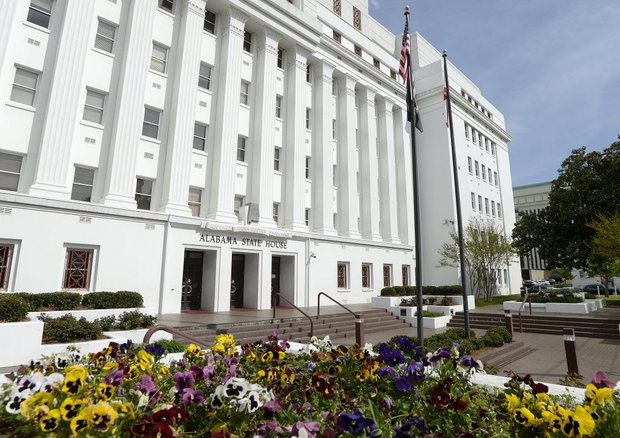
Opponents of a bill that would allow Alabama probate judges and ministers to refuse to marry gay couples on religious grounds say the legislation could open the door to broader discrimination. The Senate Judiciary Committee on Wednesday heard passionate testimony about the bill that the sponsor says came about after a brief period of legalized gay marriage in Alabama. Proponents say the bill would protect religious beliefs but opponents say it opens the door to broader discrimination of same-sex couples and other groups. Bill sponsor Rep. Jim Hill says he brought the bill after a federal judge ruled that Alabama’s gay marriage ban was unconstitutional. Hill says the legislation wouldn’t prevent gay couples from marrying. Around 500 same-sex marriages were performed in Alabama earlier this year during a three-week period. Republished with permission of The Associated Press.


